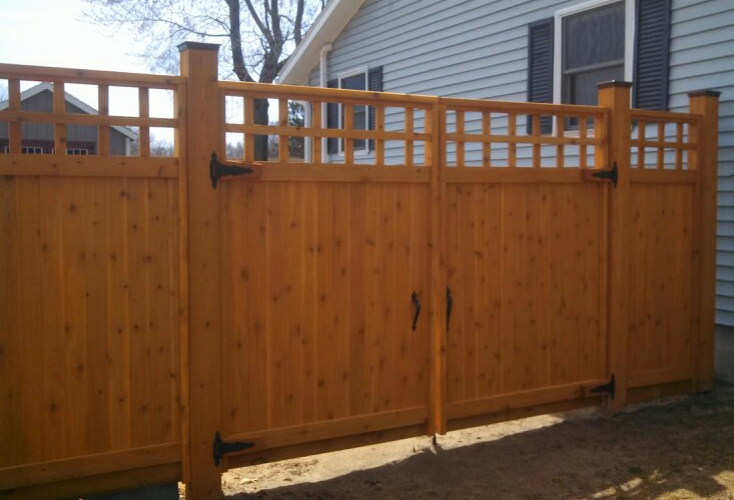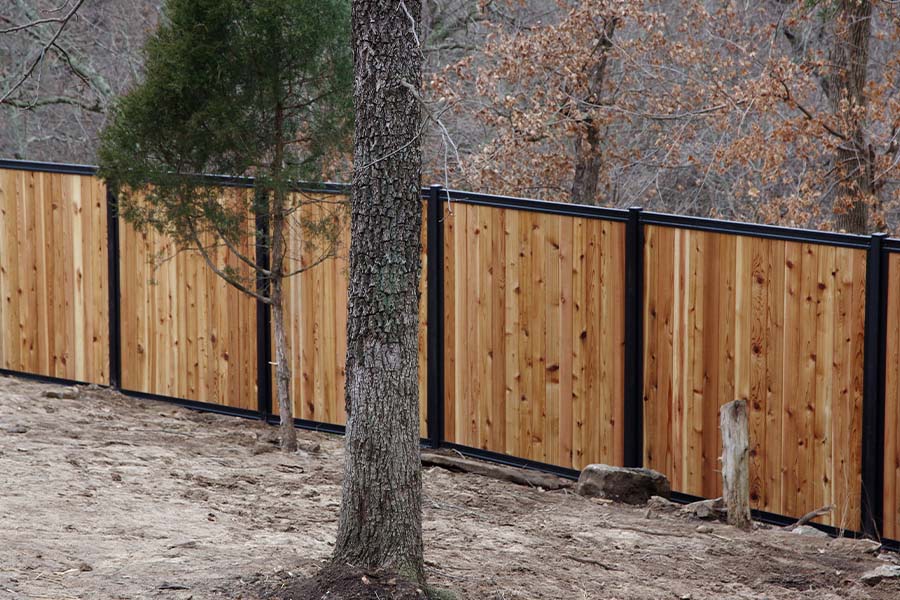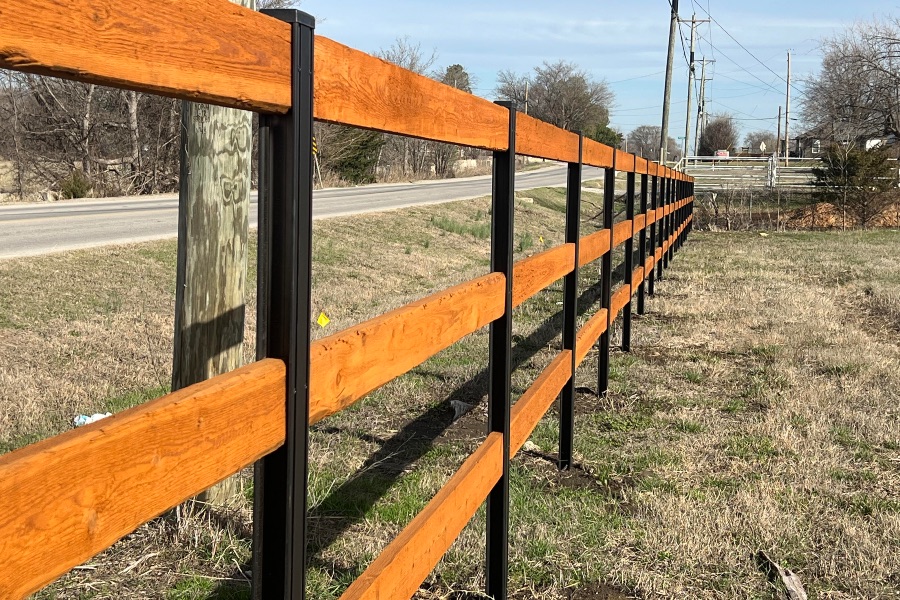All Categories
Featured

When it comes to selecting the ideal secure fencing material for your property, timber, plastic, and light weight aluminum are amongst the most prominent choices. Listed below, we damage down the advantages and disadvantages of these 3 common fence products.
Wood Fencing. Pros:
Visual Allure: Wood fences provide a natural, timeless look that matches most kinds of landscape design and style. They can be quickly personalized with paint or discolor, giving you the liberty to develop the excellent color and surface for your building. Convenience: Timber can be made use of to develop a variety of fence designs, from conventional picket fencings to a lot more contemporary layouts like privacy fences or rustic ranch-style fencings. It's very easy to customize or add to with time if your requirements transform. Price: Timber is normally a lot more economical than plastic or light weight aluminum, making it an attractive selection for home owners on a budget plan. The initial price of a timber fence is typically less than the various other materials. Disadvantages:

Upkeep Needs: Timber fences need routine upkeep, including discoloration, securing, or paint to secure them from weathering, rot, and bug damages. Without correct treatment, wood can degrade promptly. Resilience: Timber is vulnerable to harm from pests like termites, and it can warp, split, or split gradually due to exposure to the components. In areas with extreme weather condition problems, wood might need to be replaced extra frequently than various other products. Minimal Lifespan: While wood fencings can last for several years with correct care, they typically have a shorter lifespan than plastic or light weight aluminum fencings. Plastic Fence. Pros:
Low Upkeep: Among the largest advantages of plastic secure fencing is its low maintenance demands. Unlike wood, plastic does not need to be painted, stained, or sealed. It's immune to fading, cracking, or warping, making it excellent for property owners who want an easy fence. Toughness: Plastic fencings are immune and extremely sturdy to the components, consisting of UV rays, rain, and humidity. They're additionally unsusceptible pests, such as termites, that can damage wood fences. Range of Styles: Plastic fences come in a large range of shades and styles, and numerous mimic the look of timber without the upkeep drawbacks. You can pick from privacy fences, picket fences, and even more to fit your requirements. Long Life expectancy: With correct treatment, vinyl fencings can last decades, much longer than timber fences, and they include guarantees that provide assurance. Cons:
Greater Preliminary Price: While vinyl fences can conserve money on upkeep throughout the years, they tend to have a greater ahead of time expense than wood fences, which may be a deterrent for some customers. Minimal Customization: While plastic fencings are readily available in a variety of designs and shades, they do not have the customization adaptability that timber provides. You're restricted to the pre-designed panels available, which may not fit every unique visual. Prospective for Splitting in Cold Climates: In severe chilly temperature levels, plastic fencings can come to be brittle and may fracture under effect, making them much less appropriate for locations with freezing winters. Aluminum Fencing. Pros:
Sturdiness and Stamina: Aluminum is a lightweight yet strong material that withstands rust and deterioration, making it excellent for seaside areas or locations with high humidity. Aluminum fencings need minimal maintenance and can withstand the components for lots of years. Visual Appeal: Light weight aluminum fences provide a smooth, contemporary appearance. They can be found in a range of decorative styles and can be used to produce an extra classy or modern appearance for your home. Low Maintenance: Aluminum fences do not call for paint or securing, and they're resistant to rust and deterioration, making them extremely low upkeep in time. Protection: Aluminum fences offer a higher level of safety compared to vinyl or wood fencings due to the fact that of their strong construction. They can be equipped with locks and entrances to give a safe and secure boundary around your residential or commercial property. Cons:

Price: Light weight aluminum fences are typically more pricey than timber or vinyl fences, both in terms of products and installation expenses. This higher cost factor can be a downside for budget-conscious home owners. Much Less Personal privacy: Light weight aluminum fencings commonly have an even more open layout, with pickets spaced apart to permit presence via the fencing. If personal privacy is a priority, this may not be the best selection for your residential or commercial property. Prone to Denting: While aluminum is rust-resistant, it can still be dented or curved if struck with pressure, such as by a lorry or hefty tools. While it won't rust, it may not maintain its pristine appearance if it obtains damaged. Which Material is Right for You? Selecting the very best fence material relies on your details needs, budget, and lasting plans for your building. If you value visual modification and are prepared to preserve it routinely, wood may be your best choice. If you favor low-maintenance toughness and agree to spend a little bit more upfront, vinyl could be the optimal remedy. On the other hand, if you need a durable, protected fence with a streamlined appearance, aluminum may be the ideal product for you.
Eventually, consider your environment, maintenance preferences, and visual wishes when selecting your fencing product. Each alternative has its strengths and weaknesses, yet with the ideal treatment and installment, all three can supply attractive and reliable boundaries for your residential property.
Latest Posts
Learn About Auto Services & More: Comprehensive Repair Options from Montclare Auto Repair
Published en
1 min read
Signs When Your Car Needs Skilled Car Repair at Montclare Auto Repair
Published en
1 min read
Take Advantage of Special Auto Repair Specials in Chicago at Montclare Auto Repair
Published en
1 min read
More
Latest Posts
Learn About Auto Services & More: Comprehensive Repair Options from Montclare Auto Repair
Published May 26, 25
1 min read
Signs When Your Car Needs Skilled Car Repair at Montclare Auto Repair
Published May 24, 25
1 min read
Take Advantage of Special Auto Repair Specials in Chicago at Montclare Auto Repair
Published May 22, 25
1 min read